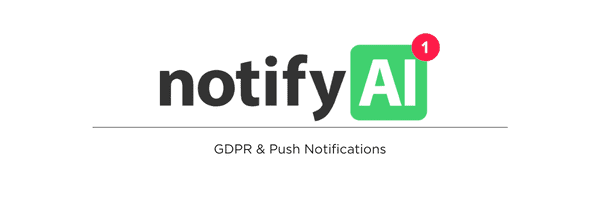
The General Data Protection Regulation (GDPR) is a comprehensive data privacy law that was introduced by the European Union (EU) in 2018. GDPR was designed to protect the privacy and personal data of EU citizens, and it applies to all companies that handle EU citizens’ data, regardless of where the company is located.
Under GDPR, companies must obtain explicit consent from users before collecting, processing, or storing their personal data. Users must also be able to easily access and manage their personal data, and have the right to request that their data be deleted or transferred to another company.
So how do push notifications fit into GDPR compliance? Push notifications can be sent under GDPR regulations as long as the following guidelines are followed:
1. Obtain Explicit Consent: Just like with CAN-SPAM regulations, users must opt-in to receive push notifications under GDPR regulations. However, GDPR requires a higher standard of consent than CAN-SPAM. Companies must obtain explicit consent from users before sending push notifications, which means that users must be fully informed about the type of messages they will receive and must actively choose to receive them.
2. Be Transparent About Data Usage: Companies that use push notifications must be transparent about how they use users’ personal data. This includes providing a clear explanation of the data that is collected, how it is used, and who it is shared with. Users must also be able to easily access and manage their personal data, including the ability to delete or transfer their data to another company.
3. Limit Data Collection: Companies must also limit the amount of personal data they collect and process to only what is necessary for the purpose of sending push notifications. This means that companies should only collect the minimum amount of data necessary to send push notifications and should not use the data for other purposes without obtaining explicit consent.
4. Provide an Opt-Out: Users must have the ability to easily opt-out of receiving push notifications at any time. Companies must provide a clear and easy way for users to opt-out, and must immediately stop sending push notifications once a user has opted-out.
5. Keep Data Secure: Companies must take appropriate measures to keep users’ personal data secure and protect it from unauthorized access or disclosure.
In conclusion, push notifications can be sent under GDPR regulations as long as companies obtain explicit consent, are transparent about data usage, limit data collection, provide an opt-out, and keep data secure. By following these guidelines, companies like NotifyAI can use push notifications to engage with their users in a way that is both effective and compliant with GDPR regulations.
Have questions? Reach out to us at [email protected] or connect with your account manager directly.